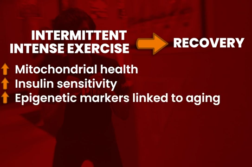MADISON, Wis. (Ivanhoe Newswire) — There are nearly 35,000 organ transplants done in the U.S. every year. Once patients receive their transplant, they face a lifetime of medications that keep their body from rejecting the new organ, but those medications can cause serious side effects. Now, a groundbreaking procedure has successfully changed that for one woman.
Having breakfast together was nearly impossible for Barb Okey and her husband after her kidney transplant. The 24 pills she took before breakfast ruined her appetite and the side effects left her tired. But that’s all in the past now.
In 27 years of doing transplants, Dixon Kaufman, MD, PhD, FACS, Ray D. Owen Professor and Chair Division of Transplantation Department of Surgery School of Medicine and Public Health at University of Wisconsin- Madison has never done one like Okey’s. Her sister’s kidney was a perfect match, but then both women took part in a second pioneering transplant to give Barb her sister’s immune system.
Okey told Ivanhoe, “We had the transplant and the next day I started radiation. I had to do radiation for 10 days. That was to suppress my immune system. After the 10th day they gave me my sister’s stem cells.”
“The immune cells start to multiply so she has not only the kidney from her sister but a little bit of her sister’s immune system. And we call that phenomenon chimerism and that’s where you have a dual immune system,” Dr. Kaufman said.
Immunity that accepts the new kidney and leaves Barb drug- free.
“It’s the start of hopefully a long progression of trials that will allow more and more people to if not completely eliminate the medicines, significantly reduce them,” Dr. Kaufman explained.
“I feel very, very lucky, very lucky,” Okey described.
Okey is just the second person in the U.S. to take part in the national trial pioneering the dual transplant. The hope is that the procedure will one day be available to transplant recipients who are not perfect matches with their donors, and possibly even to those who have had transplants in the past.
Contributors to this news report include: Pam Coshun, Producer; Sandy Kowl, Videographer; Jonathon Hedman, Editor.
To receive a free weekly e-mail on Medical Breakthroughs from Ivanhoe, sign up at: http://www.ivanhoe.com/ftk
MEDICAL BREAKTHROUGHS
RESEARCH SUMMARY
TOPIC: TRANSPLANTING THE IMMUNE SYSTEM: EASIER ON PATIENTS?
REPORT: MB #4700
BACKGROUND: Organ transplantation is sometimes necessary when one of a patient’s organs has failed. This can happen because of injury or illness. The organ may come from a living donor or one who has died. Transplants can include heart, intestine, kidney, liver, lung, or pancreas. Often patients must wait a long time for an organ transplant and doctors must match donors to recipients to reduce the risk of transplant rejection.
(Source: https://medlineplus.gov/organtransplantation.html)
REJECTION RISK: The immune system usually protects you from substances that may be harmful, but it can also simply attack anything that enters the body, which the immune system detects as “foreign”, and this includes transplanted organs. When a person receives an organ in transplant surgery, their immune system may recognize that it is foreign if the cells of the organ are different or “not matched”. Mismatched organs can trigger a blood transfusion reaction or transplant rejection. To help prevent this rejection, doctors try their best to match similar proteins known as antigens between the donor and recipient. Tissue typing ensures the organ or tissue is as similar as possible to the recipient’s tissue. The match is usually not perfect, as only identical twins have identical tissue antigens. Doctors use medicines to suppress the recipient’s immune system with the goal of preventing it from attacking the newly transplanted organ. If these medicines are not used, the body will almost always launch an immune response and destroy the foreign tissue. Some exceptions include cornea transplants, because the cornea has no blood supply. Also, transplants from one identical twin to another are almost never rejected.
(Source: https://medlineplus.gov/ency/article/000815.htm)
NEW RESEARCH: Medeor Therapeutics is now developing cell-based therapy to reprogram an organ recipient’s immune system to accept the transplanted kidney without the need for long-term use of immune system suppressing drugs. The study is in Phase 3 and is working to demonstrate the efficacy and safety of how transplanting some of the stem cells from the organ donor into the organ recipient after transplant surgery could cause an immune tolerance; preserving the organ donation and preventing kidney transplant rejection. It would also eliminate the need for immunosuppressive drugs for the rest of the patient’s life.
(Source: https://clinicaltrials.gov/ct2/show/study/NCT03363945?show_locs=Y#locn)
FOR MORE INFORMATION ON THIS REPORT, PLEASE CONTACT:
Dixon Kaufman
Gian Galassi
If this story or any other Ivanhoe story has impacted your life or prompted you or someone you know to seek or change treatments, please let us know by contacting Marjorie Bekaert Thomas at mthomas@ivanhoe.com




